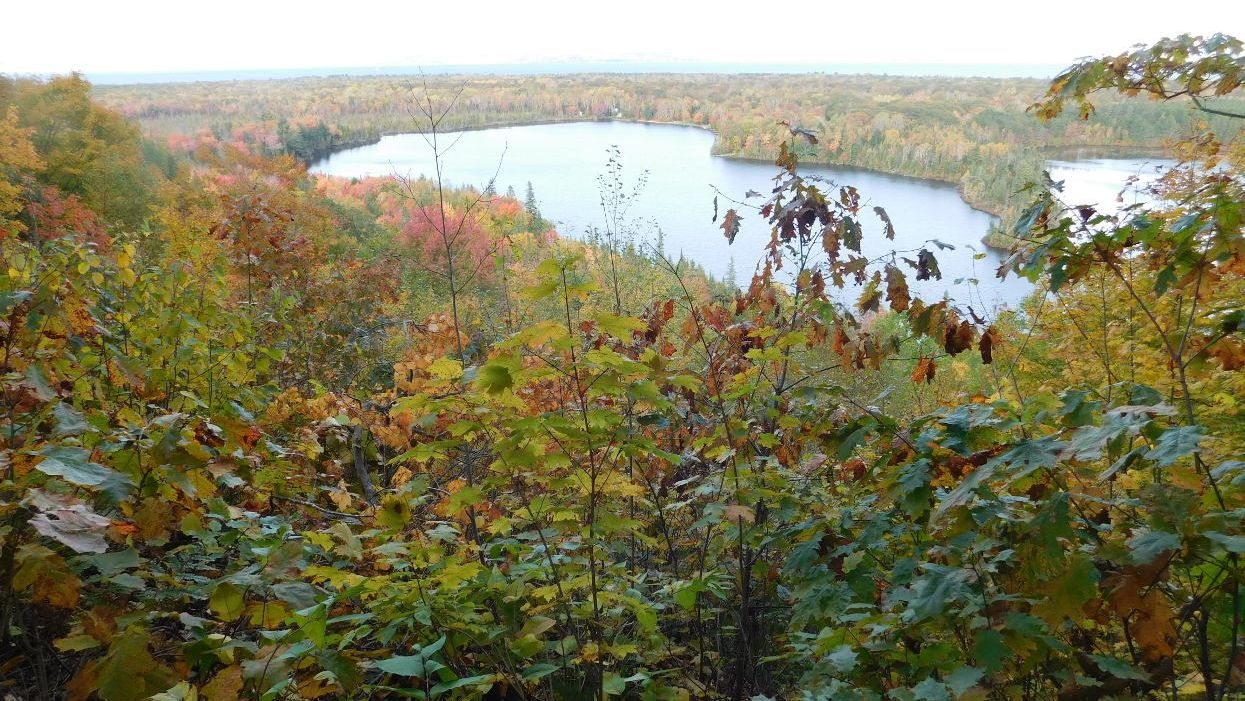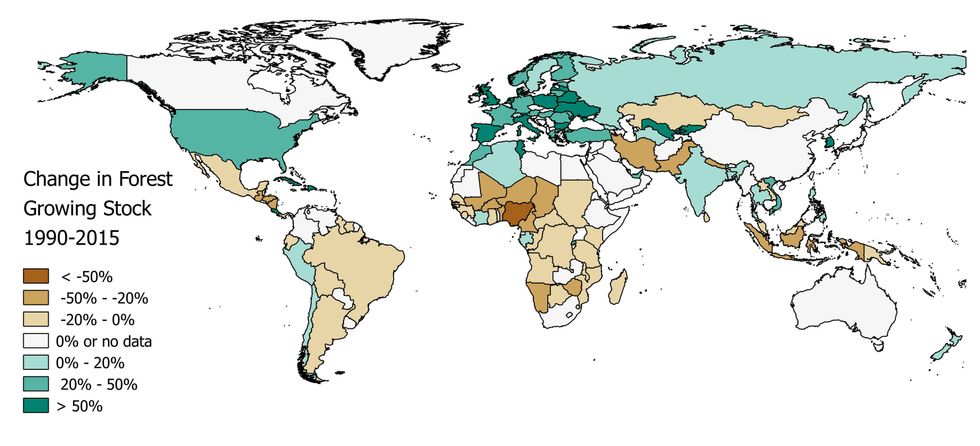The growth of forests globally is linked to human progress and well-being, according to a new report.
Researchers from the University of Helsinki and the Finnish Meteorological Institute found that countries with longer life expectancies, and higher incomes and education, were more likely to have expanding forests. From 1990 to 2015, forest growing stock—which measures the volume of trees and rate of forest growth—increased every year by about 1.31 percent in high income countries and by 0.5 percent in higher middle-income countries, according to the study published today in PLOS ONE.
This is good news for tree lovers—and the planet, as forests gobble up excess carbon dioxide in the atmosphere.
"Where people and nations are or become relatively well off, we can count on forests absorbing carbon at increasing levels," said study co-author, Pekka Kauppi of the University of Helsinki, in a statement.
On the flip side, forest growing stock decreased about .29 percent per year in 27 lower middle income countries, and by .72 percent in 22 low income countries. The largest forest losses are in Nigeria, Brazil and Indonesia.
Brunei is the only high-income country with decreasing forests.
The researchers say in nations with higher well-being farmers are less likely to farm on marginal land and more efficient farming has, in many cases, reduced the need to clear more farm land. Also, better food handling and behavior is preventing waste, and there are increasingly more alternatives to using wood as fuel.
"Highly developed countries apply modern agricultural methods on good farmlands and abandon marginal lands, which become available for forest expansion," the authors wrote. "Developed countries invest in sustainable programs of forest management and nature protection."
The researchers examined whether increased carbon dioxide in the atmosphere could be driving forest growth—but did not find any link. "Weather observations confirm indisputably that global temperatures are rising together with atmospheric CO2 levels," said co-author Antti Lipponen of the Finnish Meteorological Institute, in a statement. "However, the study shows that, over more than a century, changes in forest growing stock around the world have been virtually unrelated to those trends."
Not all areas in developing countries are gaining forests. US cities, for example, are losing millions of trees each year, according to a study released last week.
And, according to the new study, some forests being lost—such as chunks of the Amazon rainforest—are, unfortunately, those most rich with biodiversity.
Many of the newer forests are "biologically less diverse, especially when they consist of planted monocultures," the authors note.

















